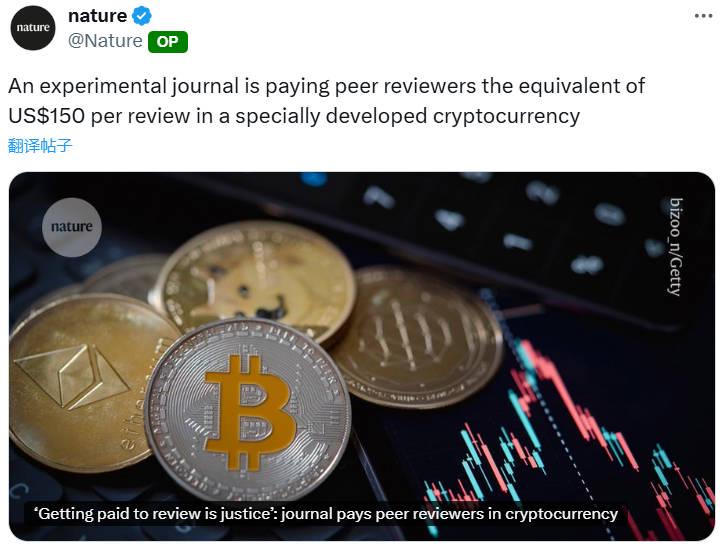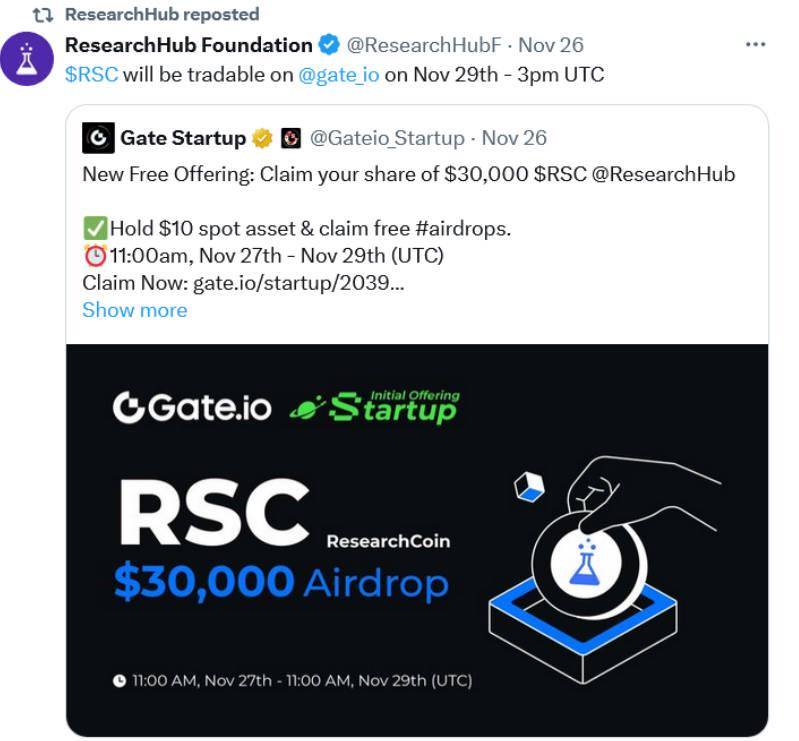Original article by Brayden Lindrea , Cointelegraph
Compiled by: Yuliya, PANews
Nature, one of the world's most influential scientific journals, recently reported on an innovative project that is changing the academic review model. The decentralized science (DeSci) protocol called ResearchHub is reshaping the traditional academic peer review system through a cryptocurrency incentive mechanism.
Innovative review incentive mechanism
Nature, a top journal with 9 million monthly visits, highlighted the innovative model of the ResearchHub platform in its December 11 article. The platform provides peer reviewers with $150 worth of cryptocurrency for independent review of new research papers. This model has achieved positive results in practice, and the article specifically mentioned the case of Pedro Paulo Gattai Gomes, a molecular biology consultant in São Paulo. He said that the income from reviewing on ResearchHub currently exceeds his income as a professor in an academic institution.
The scientist reviews an average of 15 papers per month and receives $150 worth of ResearchCoin tokens (RSC) for each review. He told the journal : "It is fair to be paid for reviewing, because it is unreasonable to not even get a thank you for purely voluntary work." Considering that the impact factor of Nature is as high as 50.5, this report undoubtedly brought important exposure opportunities for DeSci.

Market performance and industry support
This innovative model has also received a positive response from the market. According to Coingecko data, RSC rose nearly 20% in 24 hours to $1.01, with a market value of $96.1 million. ResearchHub, a DeSci protocol founded in 2020, has received strong support from Coinbase CEO Brian Armstrong. Armstrong emphasized at the launch ceremony of ResearchHub Journal in San Francisco last month: "It is a strange phenomenon in history that peer reviewers are not paid. The work they do is valuable and should be recognized and rewarded."
Challenges and countermeasures
However, Nature also pointed out some challenges facing the platform. Although ResearchHub solves some problems in the scientific community, it may be difficult to promote on a large scale due to its "radical nature".
In terms of specific operations, Nature stated that many scientists may encounter difficulties in converting RSC into legal tender. They need to convert RSC into mainstream cryptocurrencies such as BTC, ETH or USDC through decentralized exchanges such as Uniswap, and then transfer it to centralized exchanges, convert it into legal tender and withdraw it.
However, ResearchHub has taken steps to simplify the process. On November 29, RSC was officially launched on the centralized exchange Gate.io, providing users with a more convenient trading channel.

Platform operation and future development
Although ResearchHub was officially launched only last month, it has started a decentralized academic review mechanism since May 2023, using tokens to incentivize reviewers to review, comment and vote on preprints. The platform adopts the Web3 native mode, and users can reward each other with high-quality content through RSC tokens, or initiate task rewards, such as generating data analysis for comments.
In terms of economic model design, authors are required to pay an article processing fee of US$1,000, and the platform charges a 7% protocol fee from all RSC token transactions, of which 2% will be automatically distributed back to the community ecosystem through smart contracts.
Nature pointed out that as a decentralized academic journal, ResearchHub has not yet published its first paper, nor has it been included in traditional bibliometric databases such as Web of Science or Scopus. But it is worth noting that the DeSci (decentralized science) track is experiencing an explosive growth period, hitting a five-year high on Google Trends in November.
The bright future of DeSci
DeSci is much more than that. It is actively addressing fundamental challenges faced by traditional scientific fields, such as funding shortages, data sharing and collaboration. Its application has expanded to multiple specific areas, such as advancing research, reducing the cost of genetic testing, and treating hair loss. According to Coingecko data, the total market value of the industry-leading DeSci token has exceeded US$1.2 billion, highlighting the huge development potential and market recognition in this field.















